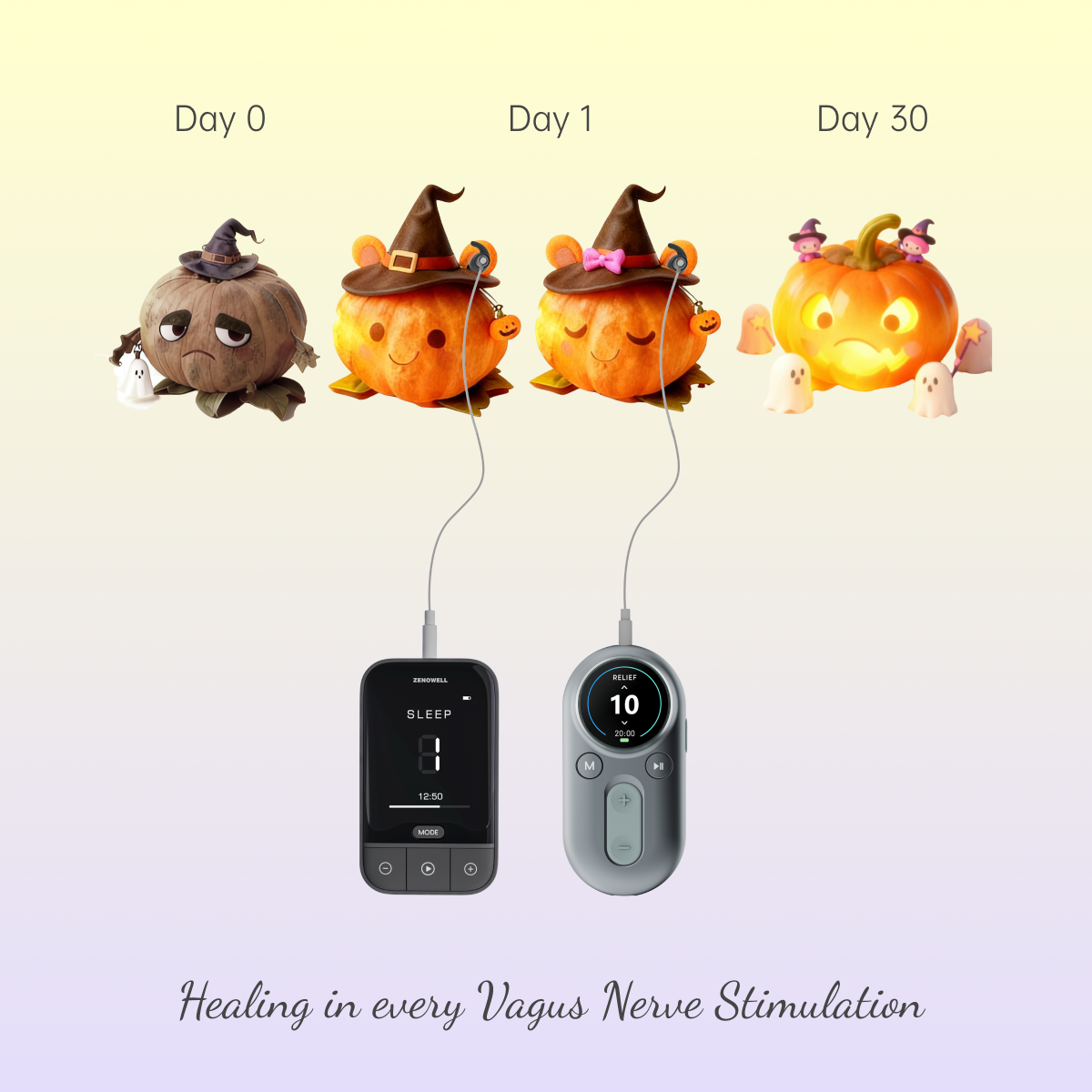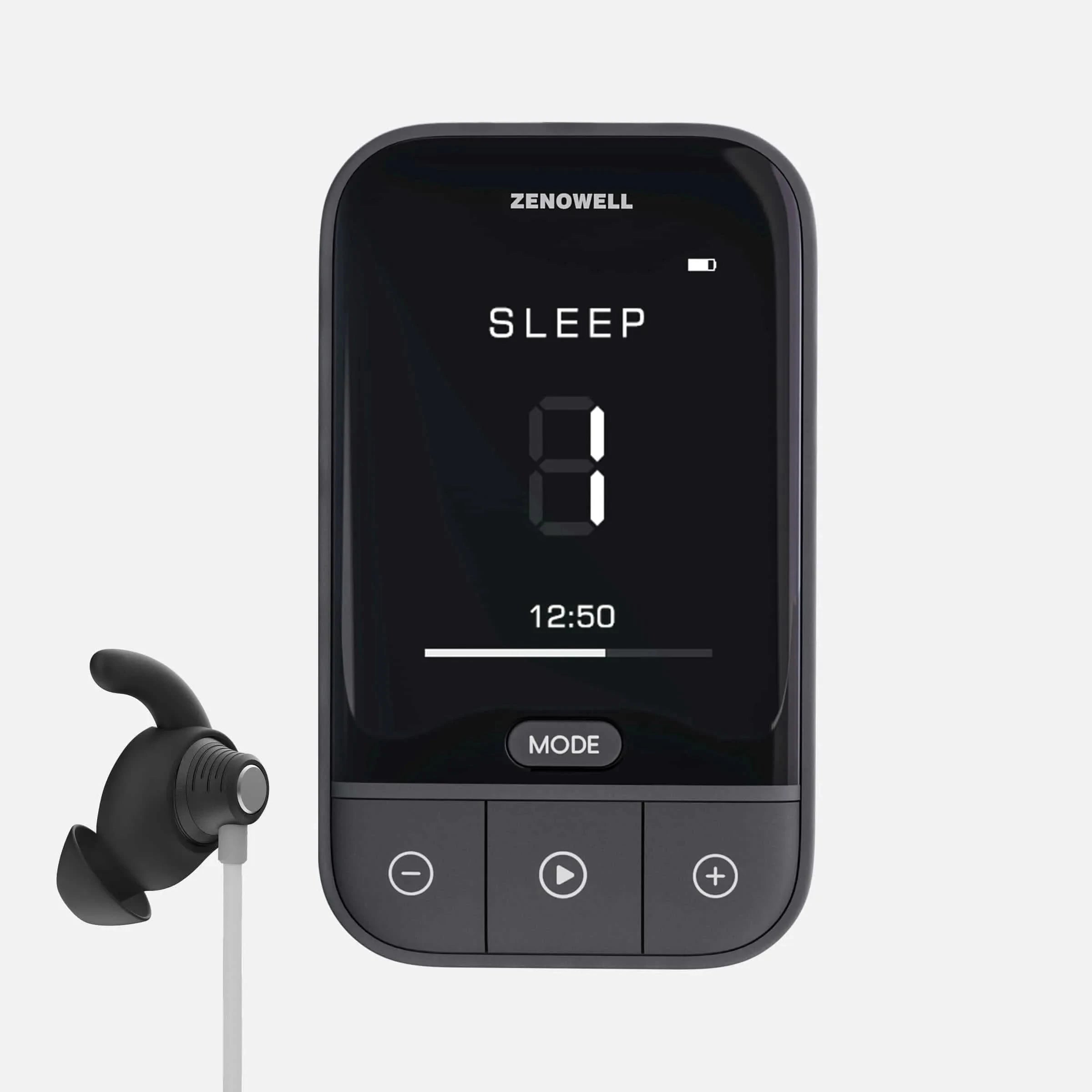The potential of ear-based bagus nerve stimulation (taVNS) for tinnitus
This is a common question, and we’re glad a lot of consumers asked! Tinnitus, especially when triggered by stress, can be a challenging condition to manage. Since taVNS (transcutaneous auricular vagus nerve stimulation) works through ear-based stimulation, it’s only natural to wonder if it might offer a solution for tinnitus. Let’s explore how taVNS might help alleviate symptoms.
Why It Matters?
taVNS delivers mild electrical impulses to the auricular branch of the vagus nerve located in your ear. This nerve plays a significant role in regulating stress, mood, and sensory processing. As the stimulation occurs in the ear, it’s natural to wonder if taVNS could alleviate tinnitus, particularly when stress is a major trigger.
The Connection Between the Vagus Nerve and Tinnitus:
The vagus nerve is a critical part of the autonomic nervous system, connecting the brain to various organs, including the heart, lungs, and gut. It plays a key role in regulating stress, emotional balance, and internal bodily sensations (interoception). Many individuals with tinnitus notice their symptoms worsen during periods of high stress or anxiety, suggesting that the vagus nerve's regulation of emotional states, stress response, and internal bodily feedback may influence how tinnitus is experienced and perceived.
What the Research Says:
While research into taVNS for tinnitus is still in its early stages, initial findings are promising—especially for stress-related tinnitus. Studies suggest that taVNS may help by:
Rebalancing autonomic nervous system activity:
- Calming the fight-or-flight response, which can exacerbate tinnitus.
- Modulating auditory-limbic circuits: These brain circuits are involved in the perception and emotional processing of tinnitus.
- Reducing cortical overactivation in the auditory system: Which may help lower tinnitus perception.
Previous Studies Indicate taVNS Can:
- Lower tinnitus-related distress: By regulating parasympathetic nervous system activity.
- Interact with emotional-auditory processing loops: Addressing the emotional toll of tinnitus.
- Enhance outcomes when combined with sound therapy or mindfulness: Providing a holistic approach to managing tinnitus.
New Research:
Study 1 – Ylikoski et al., 2024 (171 Patients with Tinnitus-Related Mental Stress - TRMS):
- 80% of patients showed increased parasympathetic activity after just one session of taVNS (via HRV measurements).
- A one-year home taVNS program resulted in significant relief from tinnitus-related stress and impairment.
- No adverse effects were reported.
- Best results were seen in those with high sympathetic tone, indicating that stress is a major contributing factor.
Study 2 – Aly et al., 2025 (64 Subjects with Subjective Tinnitus):
- 70.3% of patients reported reduced tinnitus loudness after just one session of auricular TENS.
- 9 individuals experienced complete relief.
- Participants with right-ear or “whistling-type” tinnitus showed more significant improvements.
- Long-term effects are still unclear, but immediate relief is encouraging.
What Does This Mean for Tinnitus Sufferers?
taVNS might offer real relief, especially when tinnitus is linked to stress, anxiety, or autonomic dysregulation. It’s:
- Drug-free: No need for medication.
- Non-invasive: No surgery required.
- Focused on the nervous system: Targeting the root cause rather than just the symptoms.
That said, further large-scale, long-term studies are necessary to determine the optimal parameters for individual patients and how taVNS can best be applied.
ZenoWell’s Commitment:
At ZenoWell, we’re passionate about advancing neuromodulation technology with a strong foundation in scientific research. Our devices are designed to support not just sleep, stress recovery, and pain relief but also to provide aid for conditions like tinnitus and improve overall well-being.
Have you tried taVNS for tinnitus, or are you curious to learn more? Drop your thoughts or questions below! For more detailed information on taVNS, visit our website.
Reference:
1. Ylikoski, Jukka, et al. "Stress and tinnitus; transcutaneous auricular vagal nerve stimulation attenuates tinnitus-triggered stress reaction." Frontiers in Psychology, 11 (2020): 570196.
2. Wu, Qiqi, et al. "Current status of transcutaneous auricular vagus nerve stimulation for tinnitus: a narrative review of modern research." Frontiers in Neuroscience, 18 (2024): 1405310.
3. Aly, Maha Abdelgaber A., et al. "Role of transcutaneous electrical nerve stimulation in alleviation of tinnitus in normal hearing subjects." European Archives of Oto-Rhino-Laryngology, (2025): 1-8.
















